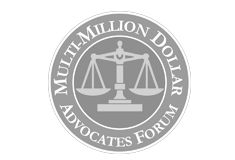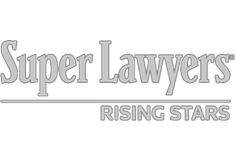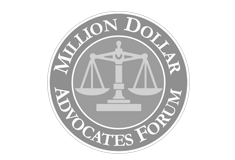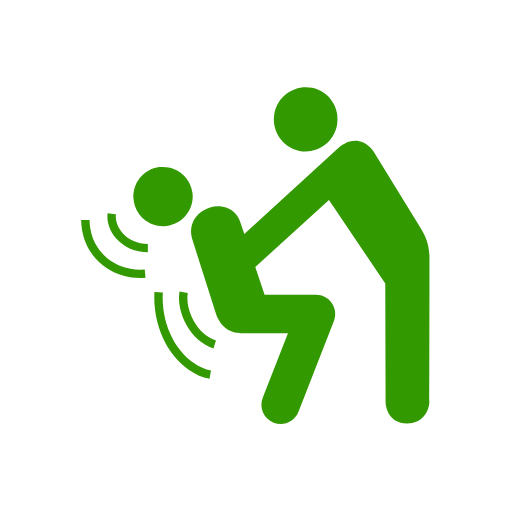PEORIA NURSING HOME ABUSE LAWYER/
If you think a loved one has been victimized in a nursing home, it is important that you talk to a Peoria nursing home abuse lawyer to understand your legal options as well as your loved one’s rights and protections.
Elder abuse in nursing homes and other care facilities is one of the most tragic yet prevalent issues our firm deals with. Family members do their best to place their loved one in what appears to be a caring, responsible facility, only to find out the person they care about has been mistreated physically, emotionally, and even sexually. These are staggeringly upsetting problems to deal with, and we understand how challenging and distressing it is to discover mistreatment.
Sometimes, you or your loved one are not even sure exactly what may have happened, or how to go about figuring out what to do if you suspect potential abuse. They may have told someone what’s happening, and yet were not believed.
Who Can Be Held Responsible in a Nursing Home Abuse Case?/
Determining negligence (who is at fault) is an important part of beginning to seek restitution when there has been nursing home abuse. When the tragedy of nursing home abuse occurs, we believe someone should be held responsible, whether the negligence was accidental or deliberate. This not only includes the person or persons who committed the abuse, but can include the owner(s) of the facility, those who are in management positions of the facility, and other responsible employees. For example, if an employee was hired without a proper background check being done, many people are responsible for these cracks in the system. Even the state can be held responsible for not identifying a caregiver as someone with a track record of repeated problems.
Experienced lawyers know how to gather evidence for these cases and how to ask the right questions to determine how many different people may be at fault. All negligent parties will be included in a lawsuit.
Documenting Evidence of Abuse/
One of the most important things to do when you suspect nursing home abuse is to document anything you believe may be related to your case. Waiting until you can get a lawyer into a facility may result in evidence being covered up or disappearing. You may have to photograph your loved one’s injuries and document and photograph dangerous or poor living conditions inside the facility. Take notes and record dates and times when you observe problems. This is evidence that can be used in your case.
In some cases, as with emotional abuse, documenting the problem can be difficult as there is no physical or visual evidence. You will need to ask questions of your loved one to try to determine dates and times of incidences, ask them to recall what was said or done, and then document those details on paper. This evidence can then be corroborated with work schedules and duty assignments, so it is important to gather as much information as possible from your loved one.
Causes of Nursing Home Abuse/
Nursing home employees are screened like any other new employee. Many are required to have special training to work in a nursing home, but it is possible that some bad employees might slip through the cracks, such as those who perpetrate abuse in a serial manner, going from facility to facility before they are detected, ejected, and punished. It can be difficult to find enough employees who are properly trained, who understand the special needs of those in nursing homes and other rehabilitative care homes. Sometimes filling open slots when help is urgently needed could take a higher priority than dotting every “i” and crossing every “t” in researching employee backgrounds.
Mismanagement and improper oversight are also potential problems. If nursing home employees are not properly trained and certified, supervised and mentored, they could be perpetrating abuse or harming residents through neglect undetected. Direct physical abuse, emotional and verbal abuse, and even sexual abuse can occur without anyone else knowing what is going on, if an employee is shrewd enough to hide what they are doing or seems to be able to discredit anyone who complains about them or their actions. Bruises can be explained away; employees can seem more credible than an elderly patient with memory problems.
HOW IS NURSING HOME ABUSE DEFINED?/
First, it is important to understand that, while they’re often closely related, nursing home abuse and nursing home neglect are legally different. Specifically, abuse refers to an intentional act carried out by a nursing facility staff member that results in injury, lack of care, physical harm, or anguish. Neglect, on the other hand, refers to a facility’s failure to provide a resident with the care he or she is supposed to receive.
Unfortunately, there are many different ways in which nursing home abuse and neglect can manifest themselves. Some specific examples of neglect and abuse include:
All of these actions are illegal and can obviously be detrimental to the health (physical, mental, or otherwise) of your loved one. Therefore, if your loved one has been the victim of any of these acts, it is important that you take the proper legal action so the nursing home can be held accountable.
We have a record of winning and will aggressively protect your rights. Put our experience in helping hundreds of clients to work for you. Find out why so many others come to us for help.
Emotional Abuse in Nursing Homes/
In situations where abuse is not necessarily physical, you may still be able to spot signs of emotional distress. For instance, he or she may suddenly appear to be very depressed, quiet, or withdrawn. In some cases, you may also notice that he or she seems inexplicably tired or that his or her hygiene has deteriorated. It is also important to be on the lookout for sudden weight loss.
Ultimately, you should go with your gut feeling when it comes to your interactions with your loved one. If something feels "off" or doesn't seem right, it's always worth investigating a little further./
Common Signs of Nursing Home Abuse/
Sadly, nursing home residents aren’t always able or willing to speak up when they have been the victims of abuse or neglect at the hands of a nursing home employee. Sometimes, a nursing home resident may not even realize that what he or she has been subjected to is, in fact, abuse. This is where it becomes especially important for family members and loved ones to remain as vigilant as possible. By watching out for some of the most common signs of nursing home abuse and neglect, you may discover abuse that otherwise would go undetected.
When visiting with a nursing home resident, always be on the lookout for physical signs of neglect or abuse./
Fresh cuts, bruises, or other injuries should always be questioned. In addition to asking nursing home staff about injuries, it is also a good idea to sit down with your loved one in a safe, private space and ask about their condition. If he or she seems afraid or unwilling to talk about how the injury occurred, this should be seen as a major red flag and you may need to consult with a Peoria nursing home abuse lawyer.
Nursing Home Abuse Statistics/
Understanding Your Legal Options in an Abuse Case/
If you believe a family member has been the victim of nursing home abuse, it’s important that you act quickly. If there are any physical signs of abuse, be sure to document them with photos. Otherwise, take detailed notes of any abuse that your loved one reports to you or any other signs (such as social withdrawal) that you notice with each visit. Of course, if you have any reason to believe your loved one is in immediate danger, you will need to call 9-1-1.
Jeff Green is a Peoria nursing home abuse lawyer who can provide you a clear explanation of your legal options. He is an experienced attorney with a record of success who will protect the rights of your loved one and seek justice./
Help From a Peoria Nursing Home Abuse Attorney/
Next, it’s a good idea to consult with an experienced legal team that can assist with cases of nursing home abuse and neglect. This way, you can receive the guidance and legal representation you need when it comes to taking the next steps, which may include filing a formal complaint with your state’s Adult Protective Services agency and seeking legal recourse against the entity responsible.
Seeing a loved one suffer from nursing home abuse or neglect can be infuriating, but it’s important to remain calm and take advantage of the resources available to you. Peoria nursing home abuse attorney Jeff Green is here to help you through every step of the legal process.
Contact Jeff today to set up a free consultation./














